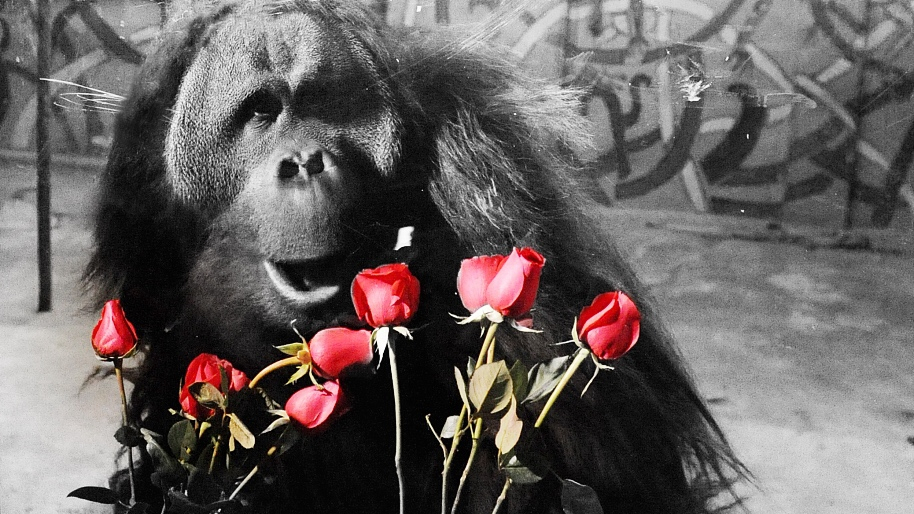Hongshan Forest Zoo in Nanjing City, China's Jiangsu Province was supposed to have a bustling day to celebrate the Dragon Boat Festival, but the sudden death of Leshen, a famous orangutan who had brought countless moments of happiness to Nanjing citizens for the past 20 years, has taken the mirth away.
The zookeepers had prepared a special holiday treat in the form of fruit zongzi for the orangutan named Leshen, but on the night of June 5, the eve of the traditional Chinese festival, Leshen died in an accident, leaving his treat untouched.
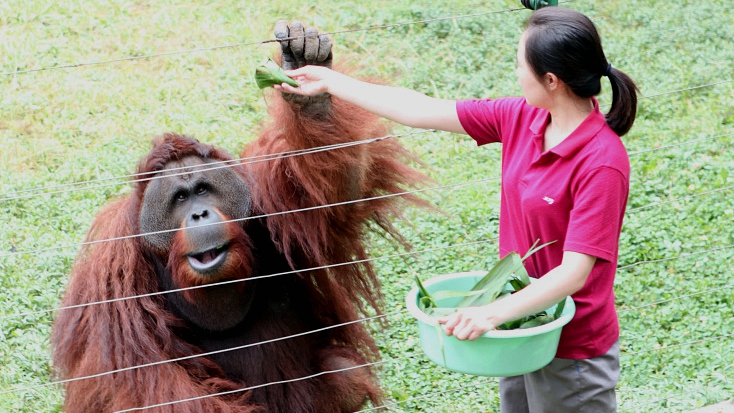
Leshen was enjoying vegan zongzi during the Dragon Boat Festival in 2012, which Nanjing citizens had made for him. /VCG Photo
Leshen was enjoying vegan zongzi during the Dragon Boat Festival in 2012, which Nanjing citizens had made for him. /VCG Photo

Leshen was enjoying zongzi in 2012 during the Dragon Boat Festival, the vegan zongzi was made by Nanjing citizens for him. /VCG Photo
Leshen was enjoying zongzi in 2012 during the Dragon Boat Festival, the vegan zongzi was made by Nanjing citizens for him. /VCG Photo
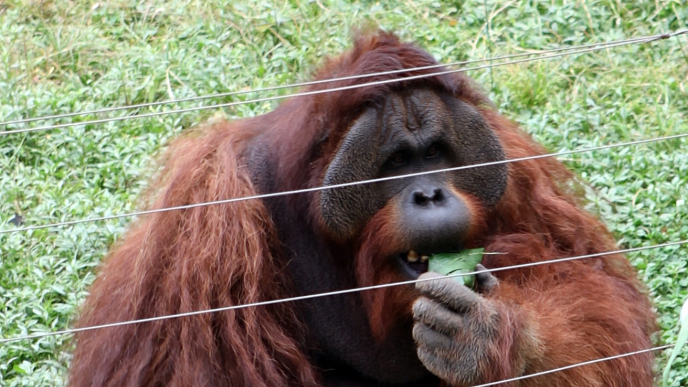
Leshen was enjoying zongzi in 2012 during the Dragon Boat Festival, the vegan zongzi was made by Nanjing citizens for him. /VCG Photo
Leshen was enjoying zongzi in 2012 during the Dragon Boat Festival, the vegan zongzi was made by Nanjing citizens for him. /VCG Photo
The accident
Hongshan Forest Zoo released the obituary the day following Leshen's death. The orangutan escaped from its cage and jumped around between trees and buildings. The zookeepers kept using food to attract the uncontrolled animal and calling him back to his place, but Leshen continued to run away until he reached the pathway.
To prevent the adult orangutan from hurting people, the zoo staff decided to use anesthesia. During the recovery period, the animal experienced pulmonary edema which was followed by heart respiratory arrest.
After 4 hours of surgical rescue, Leshen eventually died.
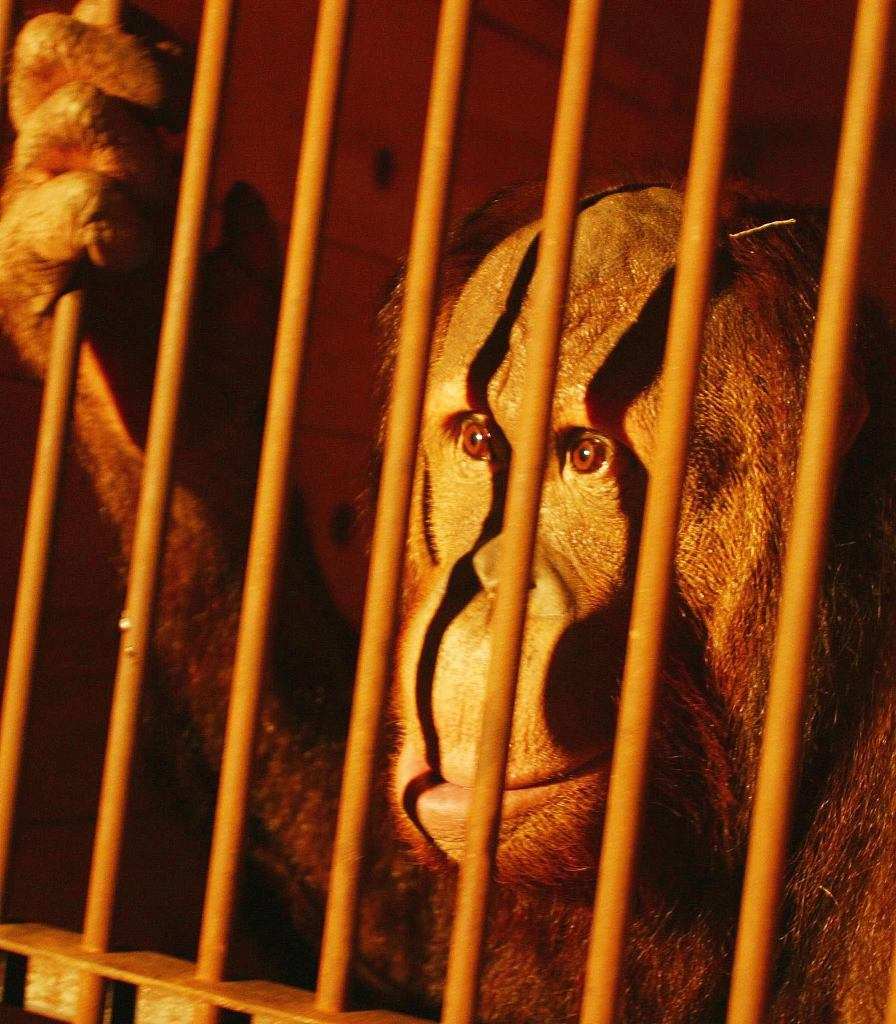
Six-year-old Leshen traveled to Jinan City, east China's Shandong Province to celebrate the coming national holiday in 2005. /VCG Photo
Six-year-old Leshen traveled to Jinan City, east China's Shandong Province to celebrate the coming national holiday in 2005. /VCG Photo
The memories
Leshen was born on May 27, 1999, at Hongshan Forest Zoo. His parents were given by Japan to Nanjing to show the friendship between the two countries. Leshen's name in Chinese characters (申) is a resemble of "China" (中) and "Japan" (日).
Raised by the zookeepers, Leshen showed incredible talent. He learned how to brush his teeth, how to paint and how to collaborate with his keepers for his health examination.
The zookeepers wanted to help the smart young boy find a soul mate, but his love stories weren't very successful.
When Leshen was twelve, a female orangutan from Hangzhou City was introduced to him. Although spending with three years with her, nothing happened between the two. In 2015, another female orangutan was brought to the zoo as a wife for Leshen. But she fell in love with another male orangutan. Leshen stayed in single eventually.
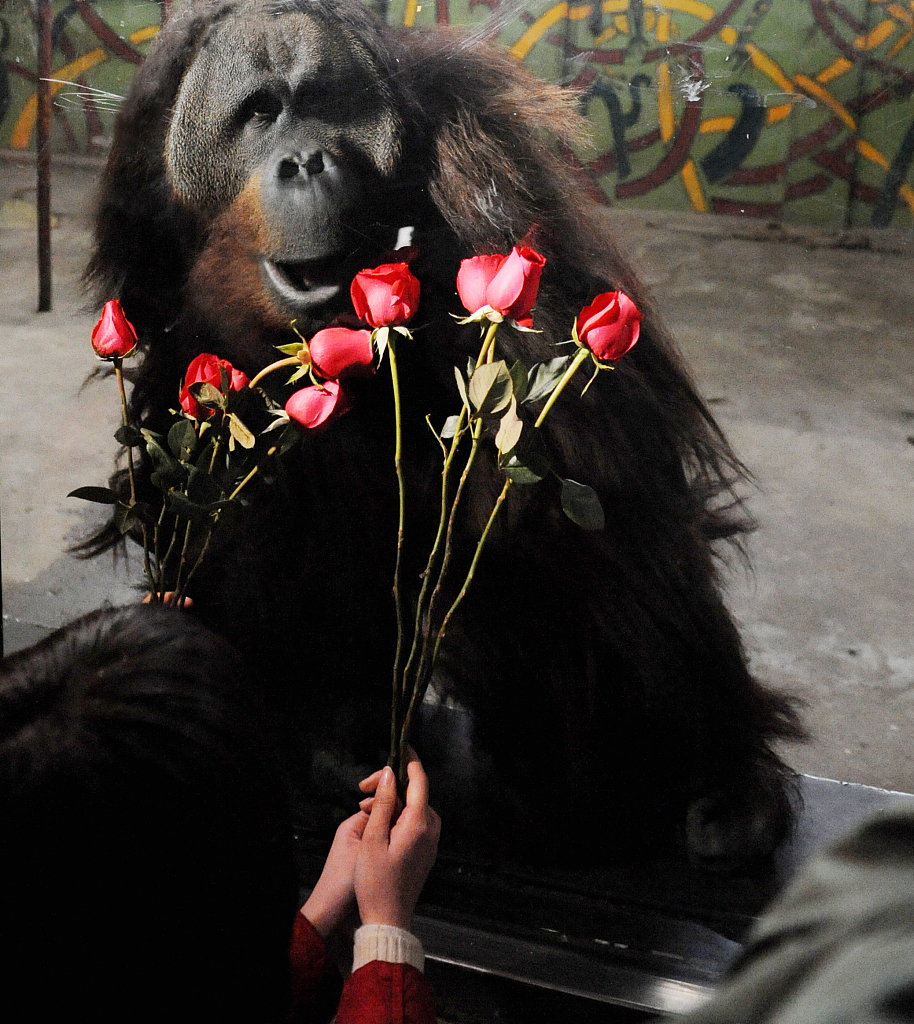
Leshen received flowers from girls on Valentine's Day in 2011. /VCG Photo
Leshen received flowers from girls on Valentine's Day in 2011. /VCG Photo
The reflection
Despite people being in deep sorrow, there are numerous voices discussing the reason behind Leshen's death, as well as arguments for and against zoos.
The old "menagerie" can be traced back to ancient times when royal families kept exotic animals for display. The term "zoo" was first used of the London Zoological Gardens which was opened to the public in 1857. But does it mean the days of the menagerie are over when we enter modern times?
The answer is controversial.
Some believe zoos are vital for endangered species such as the ring-tailed lemur of Madagascar, zoos display animals primarily for conservation and research purpose meanwhile educating the ordinary public about nature. But some argued that keeping an animal at the zoo means treating them as voyeuristic objects, restricting their behaviors due to limited space.
The debate never stops while zoos continue to exist. But on top of all the merits and ethics, the worldwide animal population is declining.
(Cover image via VCG)
(If you want to contribute and have specific expertise, please contact us at nature@cgtn.com.)

